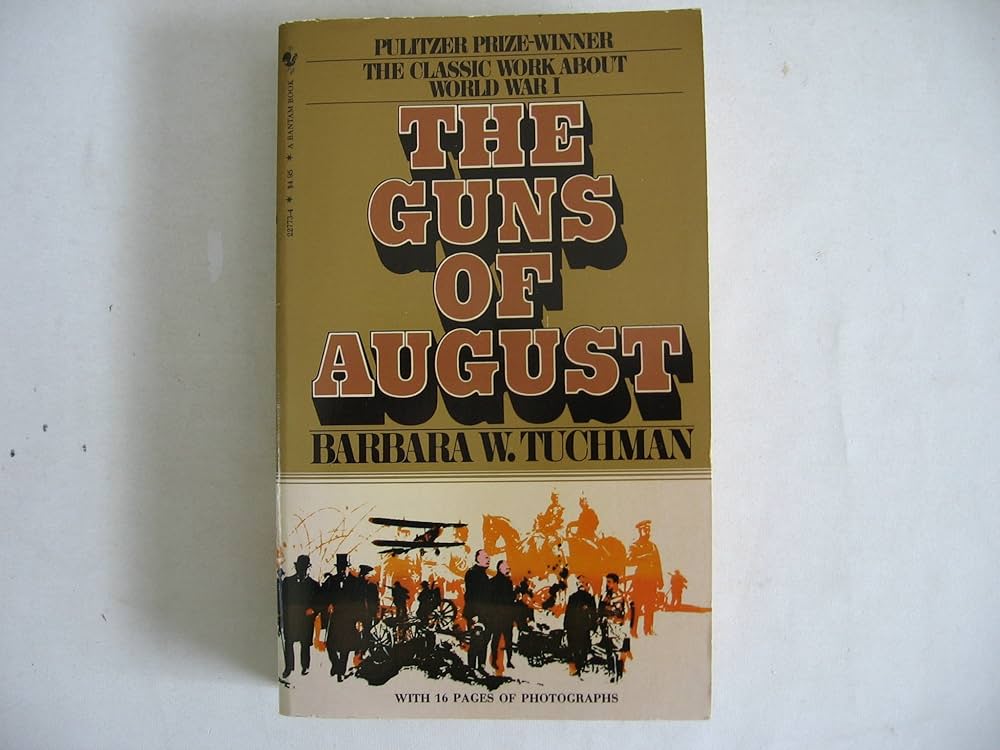“The Guns of August” by Barbara Tuchman is a Pulitzer Prize-winning book that provides a detailed analysis of the military strategies employed during World War I. Tuchman delves into the intricacies of the Schlieffen Plan, the Race to the Sea, and the Battle of the Marne, highlighting the key events that shaped the early stages of the war. Through her meticulous research, Tuchman emphasizes the importance of effective planning, communication, and adaptability in military operations. The book serves as a valuable resource for understanding the complexities of modern warfare and the lessons that can be learned from the mistakes made during World War I.
The Guns of August: A Detailed Analysis of WWI Military Strategy
“The Guns of August” is a Pulitzer Prize-winning book by historian Barbara Tuchman that delves into the intricate and complex military strategies of World War I. Tuchman’s detailed analysis provides an in-depth look at the decisions, actions, and consequences that shaped the course of the war, particularly in the critical first month of August 1914.
The Schlieffen Plan
One of the key aspects of Tuchman’s analysis is the examination of the Schlieffen Plan, a German military strategy devised by Count Alfred von Schlieffen. The plan called for a swift and decisive conquest of France by bypassing the heavily fortified Franco-German border and attacking through Belgium. Tuchman outlines how the implementation of this plan ultimately failed due to logistical issues, poor communication, and unforeseen resistance from the Allies.
The Race to the Sea
As the Schlieffen Plan faltered, both sides found themselves locked in a stalemate along the Western Front. This led to the emergence of the “Race to the Sea,” as both the Allies and the Central Powers attempted to outflank each other in a desperate bid to gain the upper hand. Tuchman provides a detailed account of the fierce battles, strategic maneuvers, and tactical decisions made by the opposing forces during this period.
The Battle of the Marne
One of the most significant events of the early stages of WWI was the Battle of the Marne, where the Allied forces successfully halted the German advance and pushed them back. Tuchman’s analysis of this pivotal battle highlights the importance of communication, coordination, and decisive leadership in shaping the outcome of military engagements. The Battle of the Marne marked a turning point in the conflict, as it shattered German hopes for a quick victory and set the stage for a prolonged and brutal war of attrition.
Lessons Learned
Through her meticulous research and insightful analysis, Tuchman sheds light on the strategic mistakes, missed opportunities, and costly miscalculations that characterized the early stages of World War I. She underscores the importance of proper planning, communication, and adaptability in military operations, emphasizing the need for leaders to learn from past failures and constantly reassess their strategies in the face of changing circumstances.
Conclusion
In “The Guns of August,” Barbara Tuchman offers a compelling and thought-provoking examination of the military strategy of World War I. Her detailed analysis of the events leading up to and following the outbreak of the war provides valuable insights into the complexities of modern warfare and the challenges faced by military leaders in times of crisis. By exploring the decisions, actions, and consequences that shaped the course of the conflict, Tuchman brings to life the harsh realities of war and the enduring lessons that can be drawn from it.
